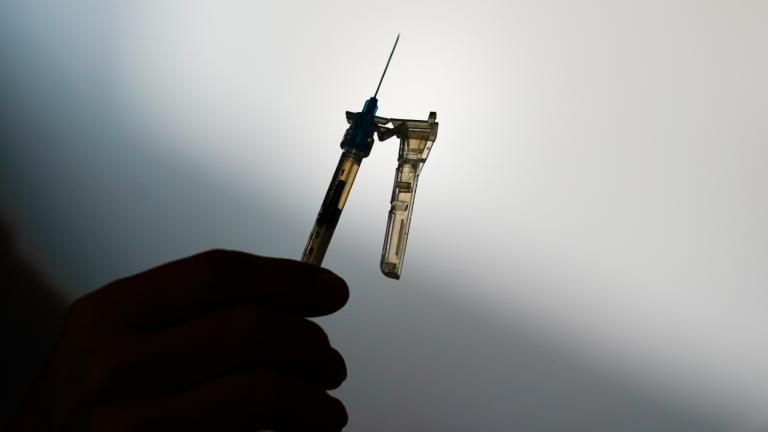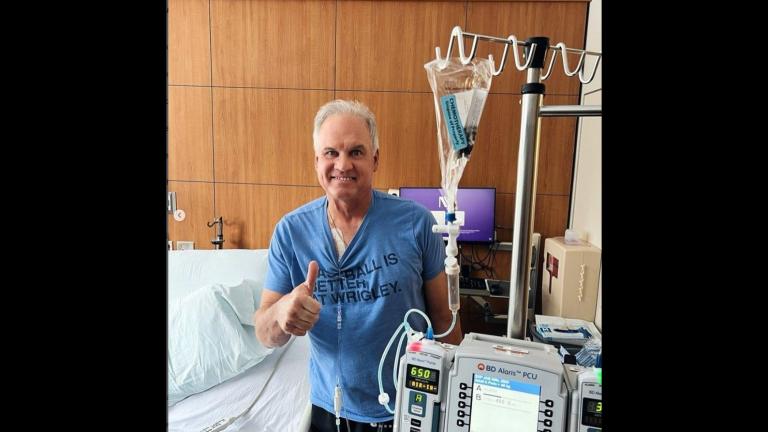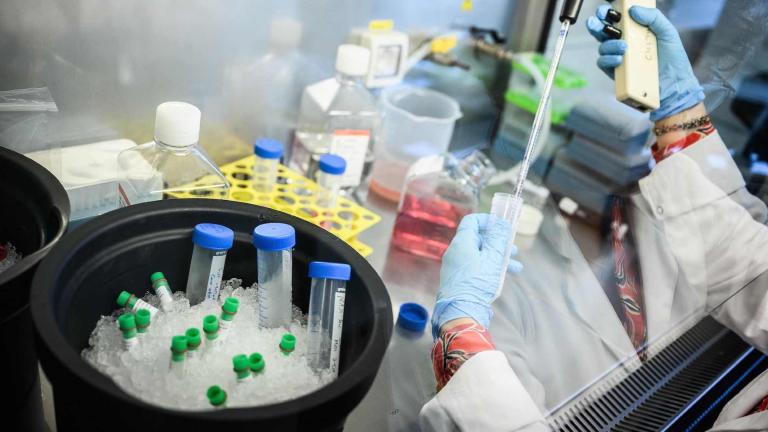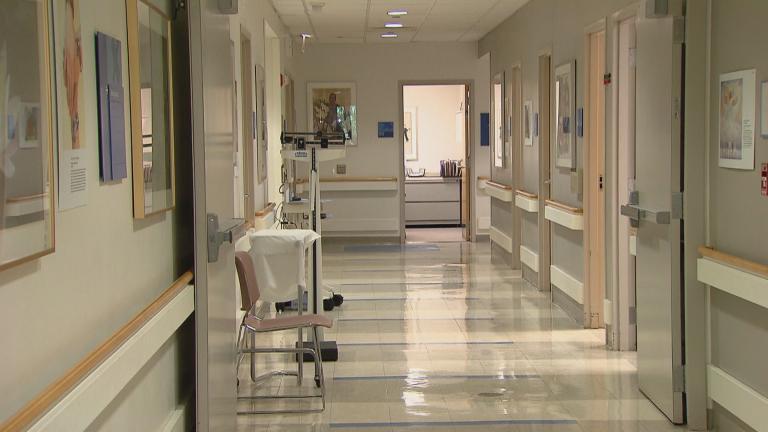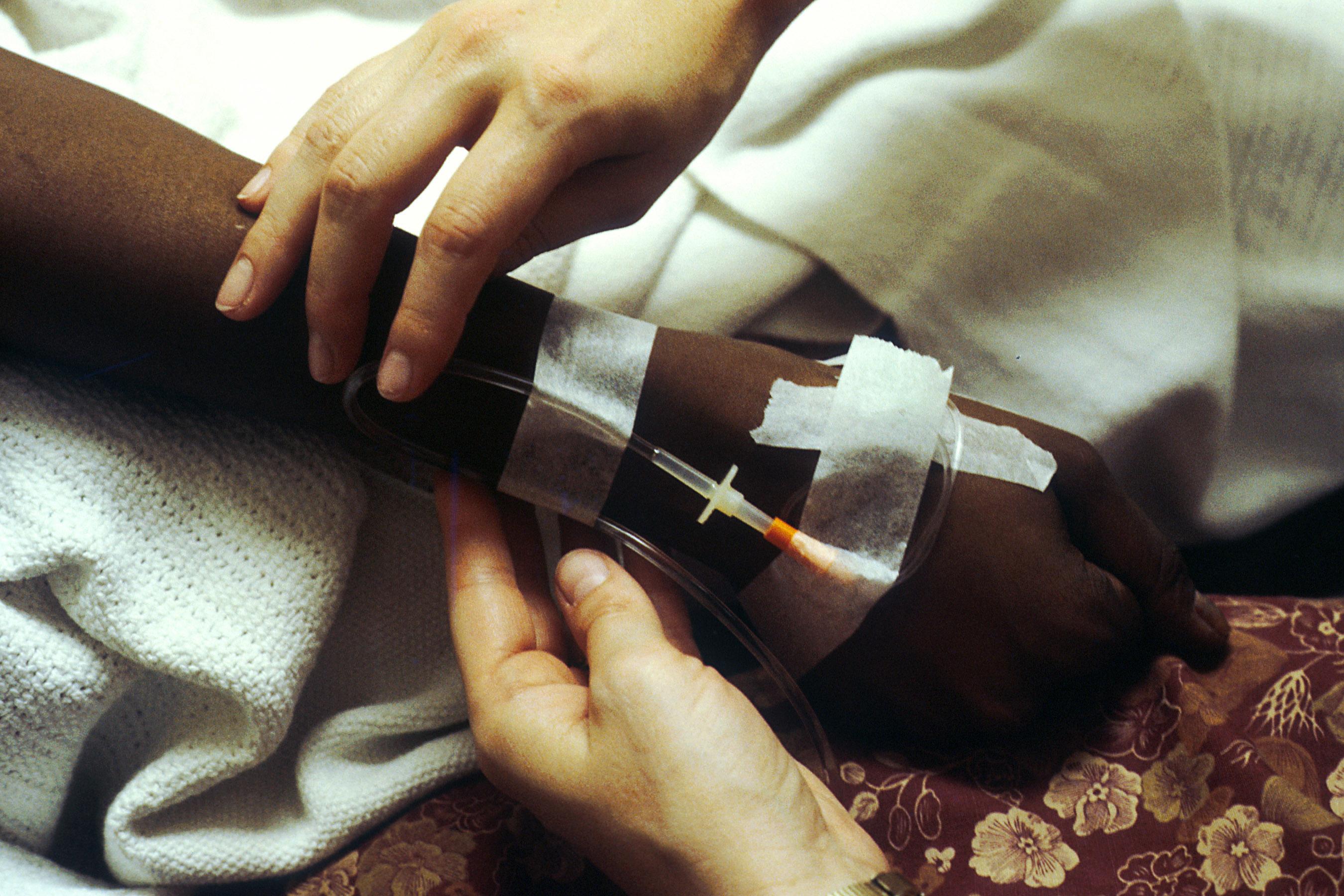 Researchers at the University of Illinois found chemotherapy affected learning and memory in mice three months after receiving the treatment. Three months for a mouse corresponds to approximately 10 human years. (Linda Bartlett / Wikimedia Commons)
Researchers at the University of Illinois found chemotherapy affected learning and memory in mice three months after receiving the treatment. Three months for a mouse corresponds to approximately 10 human years. (Linda Bartlett / Wikimedia Commons)
Though breast cancer patients and survivors have long reported forgetfulness and difficulty focusing after chemotherapy, few studies have examined the long-term effects of the treatment on cognition.
“Cancer survival rates are going up. One of the things we started seeing is people would report cognitive issues like 10 to 20 years after their cancer symptoms were gone,” said Catarina Rendeiro, a postdoctoral scholar at the University of Illinois’ Beckman Institute for Advanced Science and Technology.
These cognitive impairments, collectively referred to as chemo brain, were analyzed by researchers at the University of Illinois using a rodent model.
“We basically had female mice that we treated with a cocktail of chemotherapy drugs which were supposed to mimic what’s standardly used to target breast cancer in women,” said Rendeiro, the lead author of the study. “We looked at what was happening three months after chemotherapy and this corresponds to roughly 10 human years.”
Researchers were particularly interested in the long-term effects of chemotherapy on learning and memory. To test this, mice were placed in something called the Morris Water Maze–essentially a pool filled with water containing an invisible platform beneath the surface. The maze is supposed to train mice to find the hidden platform, according to Rendeiro. Mice that did not receive chemotherapy were used as a control group.
“There’s a learning curve and what we observed was the animal that received chemotherapy took longer to learn the location of the platform,” she said, adding these mice were “perfectly normal in terms of activity level, anxiety and mode of performance.”
Watch the video below to see how the Morris Water Maze works.
![]()
Surprised by the results, researchers replicated the experiment with a new group of mice.
“When it happened the first time, we weren’t so sure if it was real or not,” Rendeiro said of the “detectable effect” chemotherapy had on the mice's cognition three months after treatment. “But after we replicated it, that made us think that there’s definitely something there, and that can help us find out … what else is going on in the brain at this time because it’s a long time after [chemotherapy] in this [mice’s] lifetime.”
Researchers also found a decrease in neurogenesis, the generation of nerve cells, in a specific area of the brain. This decrease is anticipated during chemotherapy because the treatment targets dividing cells, Rendeiro said.
“Learning is highly dependent on the region of the brain called the hippocampus where you have new neurons being born throughout your adulthood,” Rendeiro said. “We saw a 15 percent decrease in the rate of neurogenesis three months later in the region of the brain which is relevant for the learning task we showed these animals had deficiencies in.”
In addition to studying how chemotherapy affects cognition, researchers “wanted to find out whether we could help [or] perhaps prevent a little bit of this decline in cognitive performance with a nutritional intervention,” Rendeiro said.
After receiving chemotherapy, some mice were put on a diet rich in omega-3 polyunsaturated fatty acids because “there [are] some indications that it’s healthy and can have positive outcomes in terms of how your brain ages and kind of delay that rate a little bit,” Rendeiro said.
“Unfortunately, we did not find any reliable recovery of both cognitive function and neurogenesis.”
While this lifestyle change did not yield the results researchers were hoping for, “we think this will be useful for us to try and test different lifestyle changes,” Rendeiro said. Future studies could implement dietary changes before chemotherapy treatment or use a combination of diet and exercise, she added.
Follow Kristen Thometz on Twitter: @kristenthometz
Related stories:
 Cancer Research Sharing Platform Launches at University of Chicago
Cancer Research Sharing Platform Launches at University of Chicago
June 7: Cancer researchers will have an easier time accessing, sharing and analyzing information with the launch of a new platform funded by the National Cancer Institute.
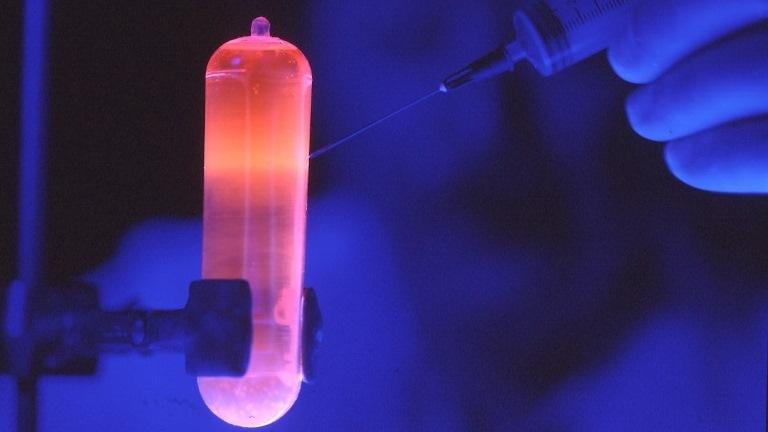 New Cancer Predictor Found by Northwestern Scientists
New Cancer Predictor Found by Northwestern Scientists
Feb.26: There's a new way to measure age that might prove helpful in assessing an individual's risk of developing cancer, according to a recent Northwestern University study. Learn about epigenetic age and how it can impact your health.
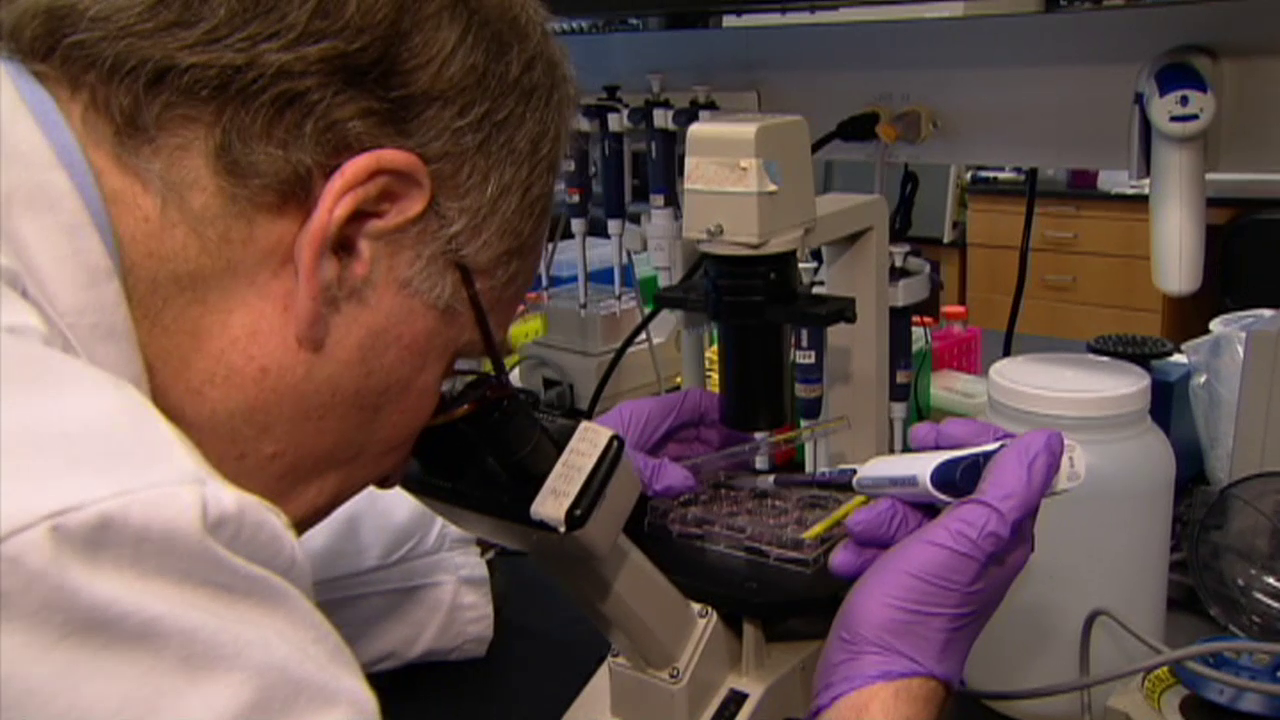 Cancer Experts Talk Transformations in Treatment and Care
Cancer Experts Talk Transformations in Treatment and Care
Feb. 24: New discoveries and treatments are transforming the way doctors are fighting cancer. We speak with two specialists about recent developments that may offer hope for many patients.
 New Guidelines for Breast Cancer Screening
New Guidelines for Breast Cancer Screening
Oct. 26, 2015: The American Cancer Society has issued new guidelines for women at "average risk" of developing breast cancer, raising the age it says they should start regular mammogram screening from 40 to 45.

